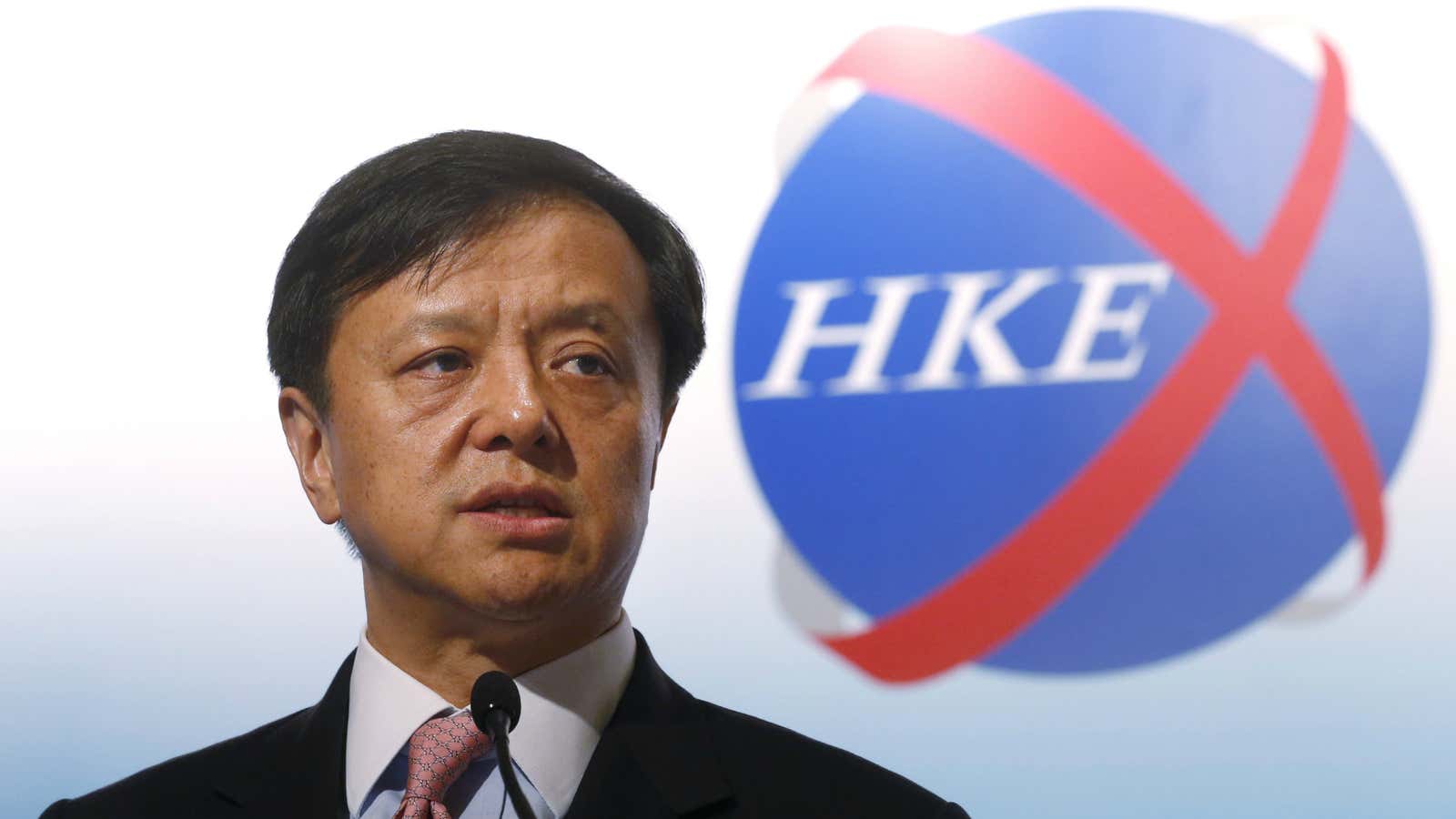Hong Kong’s stock market was number one in the world by value for initial public offerings between 2009 and 2010. In 2013, until this week, it was 13th—behind Iraq.
But there is hope yet. Sinopec Engineering, a Chinese construction and engineering firm, raised $1.8 billion on Thursday from its IPO, following state-owned China Galaxy, which raised $1.1 billion the day before. Both employed a surprisingly generous sprinkling of underwriters—13 and 21 respectively. One capital markets lawyer in Hong Kong told the New York Times (paywall): “You’ve got a lousy market, and companies don’t want to leave anything to chance to get their deals done, because they’ve seen so many deals go sideways. The mentality is, why not just keep adding banks? It gives them more comfort.”
Hong Kong is not alone in struggling to attract new listings. IPOs in Asia (excluding Japan) fell 56% to $3.3 billion in the first quarter of 2013, according to Reuters. China’s slowdown and a persistent euro crisis have likely reduced the pool of companies looking to list. Hong Kong has had a mixed record in the last year for post-IPO share performance, as data from KMPG show. Chinalco Mining Corporation, for example, is down 22% since it listed in January, but People’s Insurance is up 19% since December.
Strong post-IPO share performance by Sinopec Engineering and China Galaxy certainly wouldn’t hurt Hong Kong’s chances of seeing a recovery in IPO interest. China Guangfa Bank, Bank of Shanghai, Langham Hospitality, Hopewell HK Properties (paywall) and New World Hotel Investments (paywall) are all eyeing the Hong Kong stock exchange for listings this year, expected to raise a combined $9 billion or more. Perhaps the exchange was just taking a breather. But the big one to convince is Chinese e-commerce giant Alibaba, whose listing could value it at $60 billion or more—Hong Kong, or New York?




